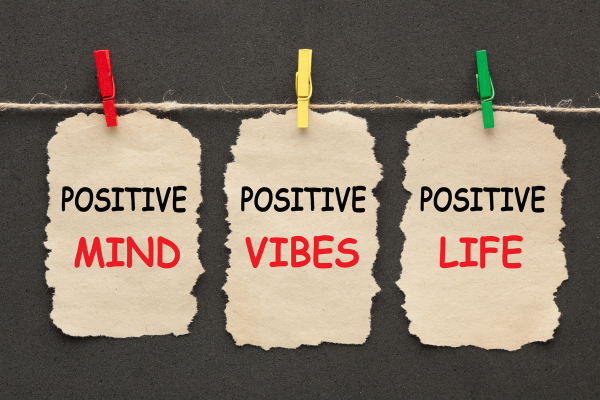
‘I Have a Friend at Work’ – Employee Retention in the Workplace
The Number One Predictor of Whether You Will Stay in a Role is The Answer to This Question:
‘Do you have a Friend at Work?’
The workplace is a space where we spend a considerable amount of our time. Whilst we’re there, we not only go about our work, but we also build relationships with our colleagues. In fact, building positive relationships at work is hugely beneficial in a number of ways. One of the most important benefits is the positive impact it has on retention, and research has shown that having a ‘work best friend’ can be instrumental in reducing employee turnover. And it makes sense if you think about it, we’ve all had that pal at work that we tend to hot desk next to, or go for lunch with, or work closely with on projects.
And it’s the latter example where it can make a difference. I remember working under tight time constraints and pressurised situations with Sarah Hazzle Hayers, and having a friend to blow off steam with in the pub afterwards makes things better. And you can bet that relationship also helped when Sarah needed me to do something better, or quicker, or in a different way because you can lean into the relationship and trust you’ve built up over time.
Interestingly, we both left that company at broadly the same time, within a few months of one another. Has this happened to you? You or your close work friend found a new job elsewhere, and it just wasn’t the same, so you started looking? Or if you think back to people you knew at work, that were tightknit. Looking back I can think of several examples where companies lost not one but two or more people as a result of someone finding a new job. There’s a gap, it’s easy to feel bereft, your enjoyment of work can be affected.
There’s some really compelling evidence to suggest that we should be fostering those relationships, because when the chips are down, it could be the friends we have at work that keep us focused on the task in hand and moving out of crisis or difficult projects.
Corporate Comrades
During the pandemic, when we were working at home, we had fewer of these relationships. And it’s so crucial to our happiness. In fact, the number one predictor of whether you stay in a role is the answer to the question – ‘I have a friend at work’.
Why are friendships so important, and why would that make you bother going to work? It’s a trusted confidant, someone you can celebrate with, they are a buffer to the often-routine stress we have at work. So, start asking yourself, do I have a friend at work? Do our people have friends at work?
It’s not that long ago we’d see our work friend more than our family, at least before March 2020 anyway. Then home became the office, and watercooler or kitchen catchups were replaced by Zoom and Teams calls.
Lynda Gratton, Professor of Management Practice at the London Business School recently released a book called Redesigning Work. Lynda says traditionally, people are pretty bad at forecasting what’s going to make us happy. She also points to a Harvard Study that suggests because friendships are often messy and unpredictable, we tend to downplay the benefits of them. Lynda’s tips are:
- Recognise having a friend at work is a source of happiness
- Make time for that friendship and to make friends (she also goes on to say get rid of 50% of the meetings in your diary to achieve this, but that’s maybe a whole other blog)
- Remember friendship isn’t a transaction, it’s a generosity of listening, of understanding and of sharing your own experience. And also, of listening to someone else’s experiences.
So, how are your teams and managers making time for this friendship, and for building more shared experiences. How are you making sure Managers aren’t undervaluing the importance of friendships. No one likes ‘enforced fun’ but think about how your teams and cross-disciplinary teams interact and where they foster genuine bonds. For me, and for us here at YTS, this is more spontaneous work drinks as opposed to Tough Mudder, but think about what would work for your people.
Personal Enjoyment + Professional Stimulus
And spare a thought for those at the top, the higher up the ladder you get, the fewer work friends you might have. Now it’s tough at the top as they say, but does it really need to be lonely too?
Building Social Connections
As social beings, we crave human connections. We seek out meaningful relationships that are based on trust, shared values, and common interests. In a workplace setting, having a best pal who shares these attributes can be incredibly fulfilling. It provides us with a sense of belonging and reduces the feelings of isolation and loneliness that can arise in a workplace setting.
Research has shown that social connections are critical to employee engagement and retention. A study by SHRM found that employees with friends at work were more engaged, committed, and satisfied with their jobs. Additionally, the study found that employees with friends at work were less likely to leave their jobs than those without friends.
Boosting Morale and Motivation
Workplace friendships can also boost morale and motivation. When we have someone to share our professional experiences with, it can help us navigate challenging situations and maintain a positive outlook. It can also help us feel more motivated and driven to succeed.
A study by Gallup found that employees who had a best friend at work were 43% more likely to report having received praise or recognition for their work in the past seven days. Additionally, they were 37% more likely to report feeling that someone at work cares about them as a person. This support and encouragement can be incredibly motivating and can help employees feel valued and appreciated.
Reducing Turnover
Perhaps the most significant benefit of having a best friend at work is the impact it has on employee retention. When we have a positive relationship with our colleagues, it can make us more committed to our jobs and more likely to stay with the company long-term. This is especially true when we have a best friend at work.
A study by O.C. Tanner found that employees with a best friend at work were more likely to stay with their company long-term. In fact, they were 7 times more likely to be fully engaged in their work, and 50% more likely to report having a strong connection with their company’s mission and values. This strong connection can make it harder for employees to leave their job, even if they receive offers from other companies.
Increasing Collaboration and Productivity
Finally, having a best friend at work can increase collaboration and productivity. When we have a positive relationship with our colleagues, we are more likely to collaborate effectively and work together to achieve shared goals. This can lead to increased productivity and better results for the company.
A study by Harvard Business Review found that employees who felt they had strong social connections with their colleagues were more likely to collaborate effectively. Additionally, they found that employees who felt they had best friends at work were more committed to their jobs and more likely to engage in productive behaviours.
The Office Spouse
It can be a tricky one to navigate, these relationships can sometimes fall into uncharted territory, but the office spouse in its purest sense is a truly wonderful iteration of friendship at work. One that’s probably undervalued too.
We were remote for a long time, but it’s becoming increasingly important to feel connected to our colleagues again. Lots of people have started new jobs in the pandemic and don’t know anyone, does this sound like some people within your teams? Having a best friend at work can be incredibly beneficial for your retention rates. Building positive relationships at work can reduce feelings of isolation and loneliness, boost morale and motivation, increase collaboration and productivity – and most importantly – reduce employee turnover. The statistics demonstrate that having a best friend at work can make a significant impact on employee engagement and satisfaction. Companies that prioritise building positive relationships between employees can create a more supportive and fulfilling work environment, which in turn can lead to higher retention rates and a more successful business.


